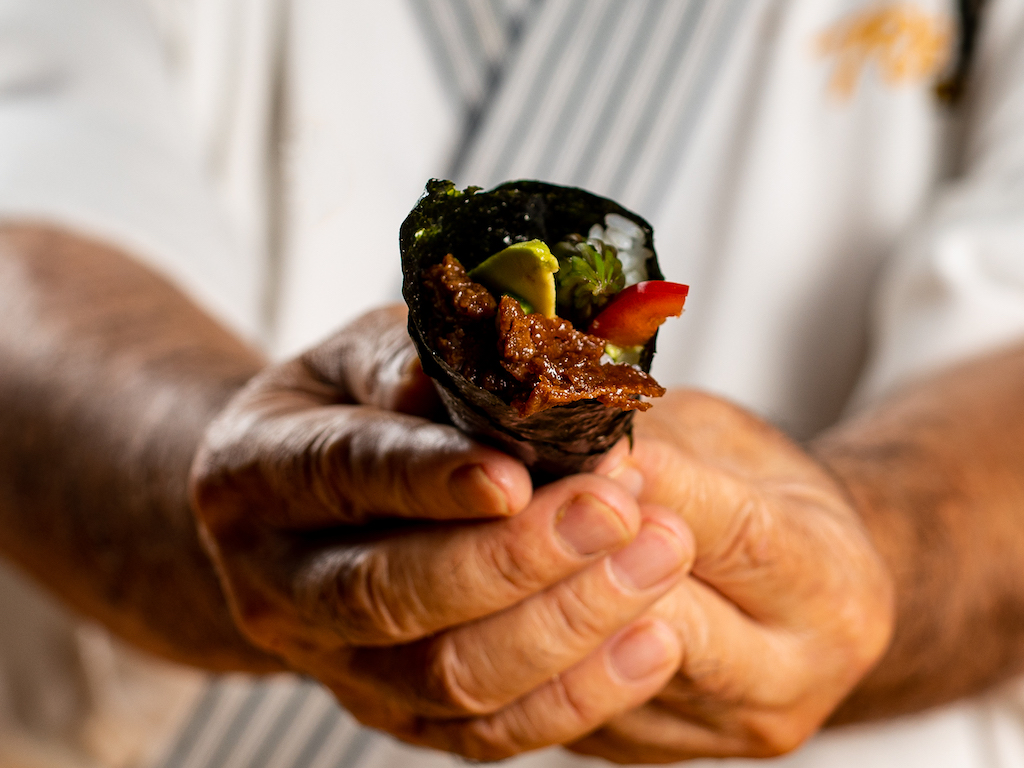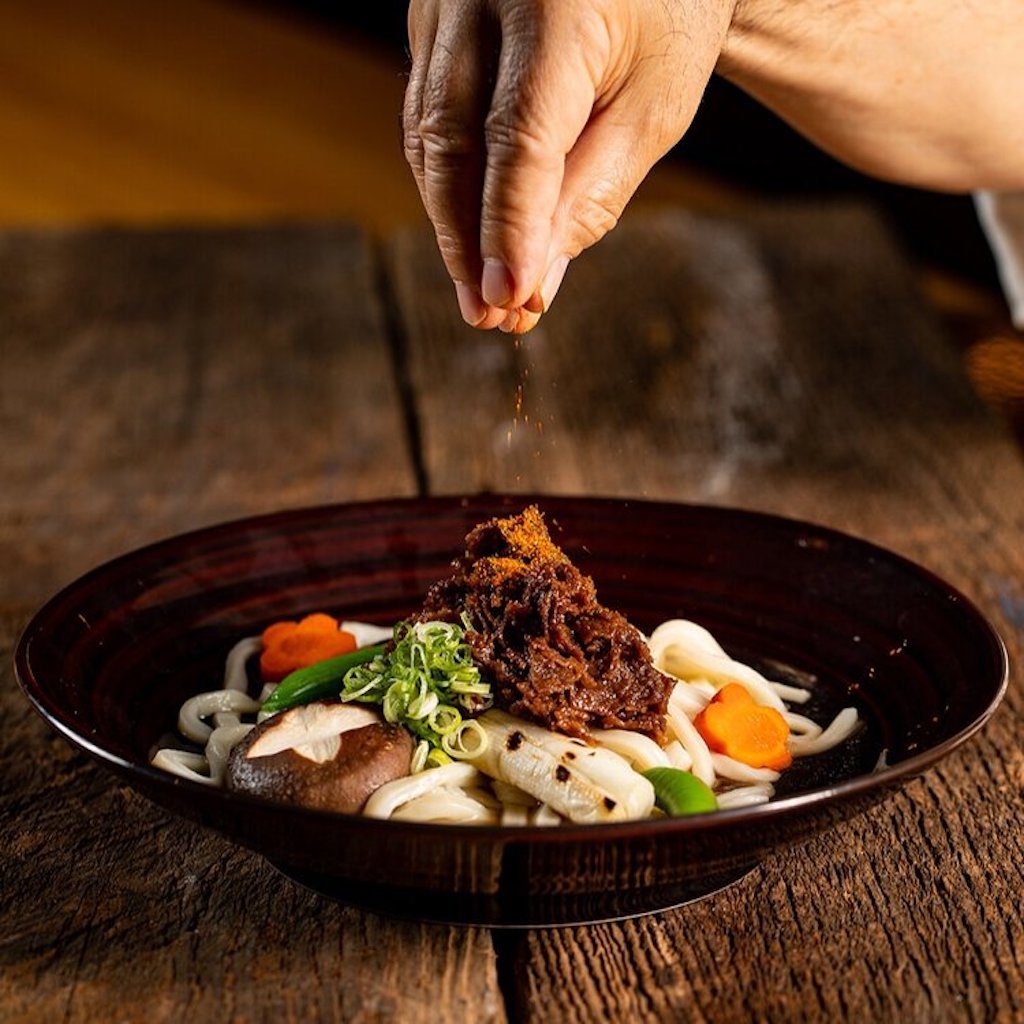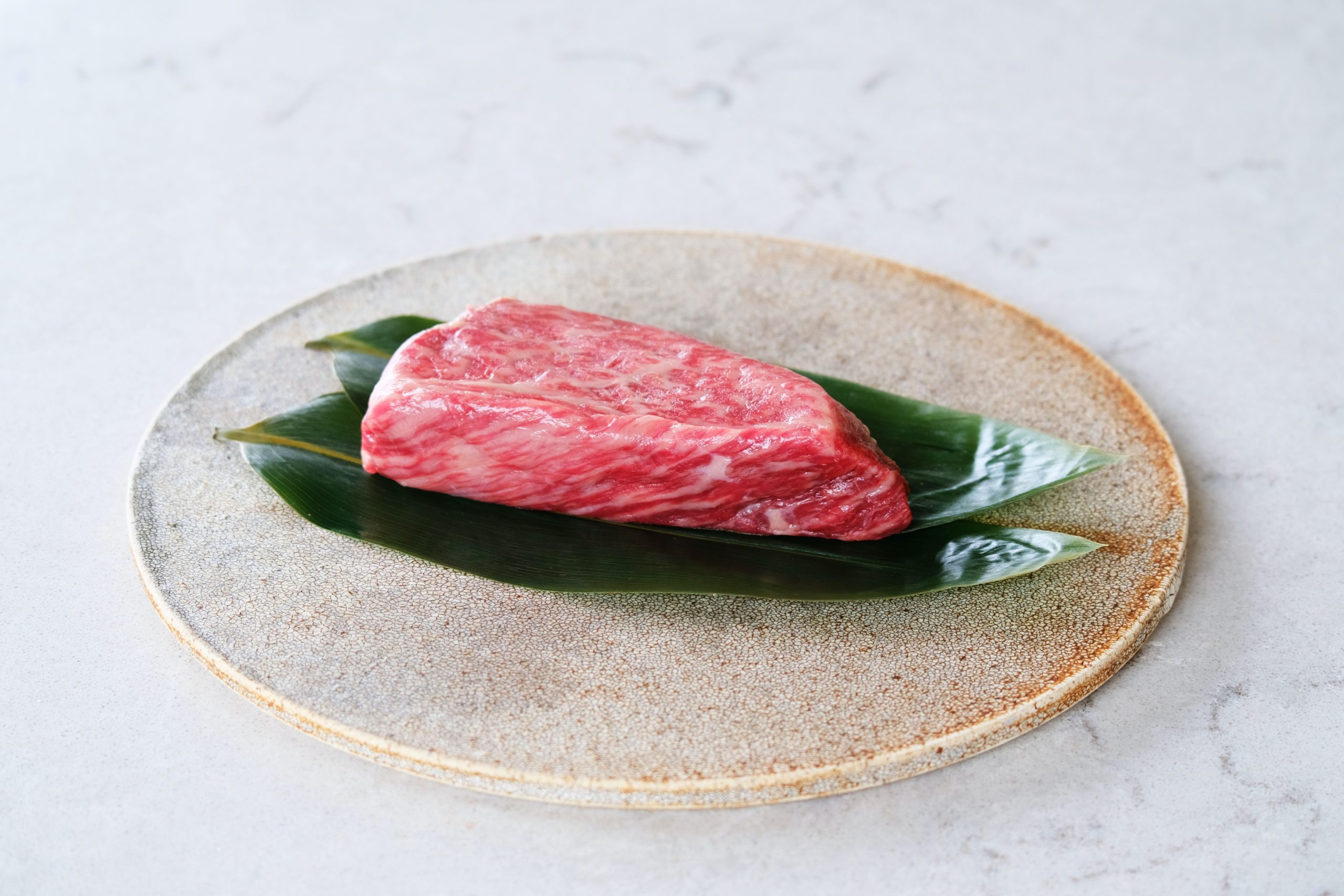4 Mins Read
Hong Kong’s Alt Farm revealed it has identified China and Australia as key initial markets. The 3D food printing company is looking to produce a plant-based A5 wagyu beef analogue suitable for launch within the next 18 months.
An offshoot of the Hong Kong University of Science and Technology, Alt Farm has created proprietary technology for its protein printing. A specialist nozzle allows for specific textures to be included in food products. The startup claims this is its defining USP as most other 3D enterprises produce texturally inferior items that require further processing.

Recreating high-end meats without animals
A5 Wagyu beef is one of the most premium and expensive meat products available to buy. Choosing to replicate it with plant-based ingredients and 3D printing is a testament to the technology that Alt Farm has designed.
“We have developed a patented nozzle in which biochemical enzymatic reactions can be carried out to solidify the printed product and generate different textures such as fibrous texture for plant-based meat products,” Kenny Fung, managing director at Alt Farm told FoodNavigator-Asia. “Our first target is to make plant-based products, but the technology allows us to adjust the 3D printed food to be most textures from chewy to crunchy and so on. The plant-based market is our first target as it is growing really fast, and has the scale and innovation to support our simultaneous growth as well.”
For the wagyu, a blend of pea, soy, and algae protein will be used. The protein will be printed with fats and flavourings to recreate one of the world’s most expensive cuts of meat. Coconut, shea, and cocoa butter are being used to replicate the famous marbling of conventional beef. R&D is currently in progress, with an initial prototype slated for 2023.

Vegan meat production over licensing
Alt Farm has acknowledged that many competitors seek to perfect their technology to sell. Instead, the startup is determined to unlock more ‘pioneering value’ by creating and selling products itself. Strategic partnerships with food manufacturers and distributors are being investigated. The latter has so far identified Mainland China and Australia as promising initial launch markets.
“Definitely the first area we think there is most value for this is in making products for retail, and to that end, we are looking at China as a key market of focus, as well as Australia,” Joanna Hui, operations director at Alt farm told FoodNavigator-Asia. “As for the product categories, things like plant-based steak, sashimi, chops and so on are what we think are the best fit – all of these will need different technologies to make, so we have our work cut out there.”
By retaining control over the products made, Alt Farm alludes to an even more specialist niche for its wagyu: nutrition modification according to consumer needs. The startup claims that consumers could undergo medical tests to identify any deficiencies. From here, products could be printed to top up nutrient levels to negate the need for separate supplements. Mass production issues need to be ironed out first, however.
At present, Alt Farm reports that it can take up to four hours to print one wagyu steak. This highlights the need for more R&D and scaling investigation. The startup is already looking at how it can up its production capacity and is considering investing in more printers. The outlay for this path makes it prohibitive right now, with the company stating that it can use its technological prowess to adapt other equipment.

Banking on wagyu
Alt Farm is not alone in looking to offer an alternative to conventionally farmed wagyu beef. Canada’s Top Tier Foods confirmed last week that its vegan ‘Waygu’ steak was selected to be served at the Ted2022 Conference this month. It comes after a limited trial was conducted with shops and sushi restaurants to gauge consumer acceptance. The soybean-based protein was developed by Japanese culinary teams to maintain the heritage of the beef. It went on to fool professional chefs.
In Silicon Valley, female-founded food tech Orbillion Bio is looking to develop cultivated wagyu. The move will come as part of a commitment to recreating ‘heritage meats’ in a more sustainable way than through animal agriculture. The company raised $5 million in a seed round last year to continue its R&D.
Lead photo by moreau tokyo on Unsplash.





